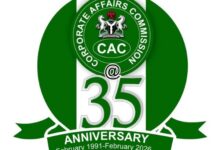Bread, Meat Price Increase as Inflation Rises By 8%-NBS
 The National Bureau of Statistics (NBS) on Tuesday January 14, released the Consumer Price Index for the month of December 2013.
The National Bureau of Statistics (NBS) on Tuesday January 14, released the Consumer Price Index for the month of December 2013.
The report, signed by the Statistician-General of the Federation, Dr. Yemi Kale, stated that the country’s inflation rate rose to 8% year-on-year. This, it said, was a marginal increase of 0.1% point from the 7.9% recorded in November 2013.
This is the second consecutive increase in the CPI within the last two months. In November, the CPI recorded a marginal growth of 0.1 percentage point from 7.8% to 7.9%. The NBS report stated, “In December, the Consumer Price Index, which measures inflation, rose by eight per cent (year-on-year), edging higher by 0.1 percentage points from 7.9% recorded in November.
“Prices rose on the back of increases in eight of the eleven non-food classifications of the individual consumption according to purpose divisions, which contribute to the core sub-index.
“In December, on a month-on-month basis, the highest price increases were recorded in the oils and fats, bread and cereals, and meat and fish classes.” The report noted that increases in these divisions were, however, offset by slower increases in the alcohol beverage, tobacco and kola, housing, water, electricity gas and other fuels, and transport divisions.
As a result of this, the report said the core sub-index rose by 7.9% in December, marginally higher than the 7.8 % recorded in November.This, the NBS noted, was the sixth consecutive month of an increase in the core sub-index.
It said the food index grew at the same rate of 9.3% recorded in November in the succeeding month. The Monetary Policy Committee of the Central Bank of Nigeria had, at its last meeting held on November 20, 2013, adopted an inflation target of between 6% and 9% for this year.
The CBN Governor, Mallam Lamido Sanusi, had while addressing journalists after the meeting, said since the Heads of State of the Economic Community of West African States had set a 5% target at the Convergence Council, the MPC would ensure that Nigeria moved firmly into being a low-inflation environment in the medium term.
Sanusi had said then that in spite of the progress made so far in reducing inflation; the outlook for 2014, however, indicated some potential challenges that might lead to further tightening in monetary conditions.
He said, “The committee noted the decline in inflation and the benign outlook going into the first half of 2014. The outlook for 2014, however, portends some potential headwinds that may lead to further tightening in monetary conditions. “It is also the year in which election spending is likely to take place domestically, thus bringing more pressure to bear from the fiscal side. As a result, the MPC is of the view that we are not yet at the end of the tightening cycle and may need to tighten further in response to these eventualities next year.”
But commenting on the inflation outlook for the 2014 fiscal year, the Head, Research and Strategy, BPL Plc, Mr. Olufemi Ademola, said while the government, through the CBN, might have achieved its objectives of price stability, there was a need to address the structural defects in the economy such as unemployment and lack of infrastructure.
He said given the commitment of the CBN to move the country firmly into a low-inflation environment in the medium term by formally adopting an inflation target of between 6 and 9% in 2014, the monetary policy stance was likely to remain non-accommodating in the short term through the first half of 2014.










